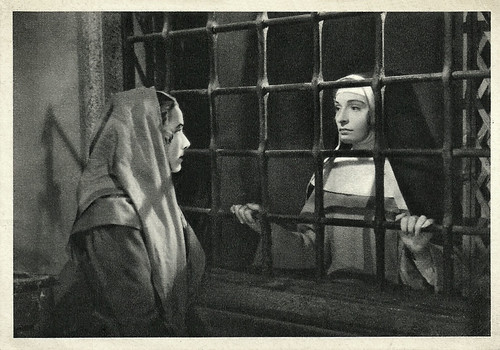B List: Manzoni--I Promessi Sposi……………………………………..652/668
C List: Walter Scott--The Heart of Midlothian...………………………..38/540
So I wasn't quite able to finish Manzoni in time for this month's report. I have been very busy, especially in the weeks leading up to the beginning of school there were several days where I wasn't able to read it at all. But I am getting back on more of a regular schedule now.
Taking up Scott at the same time one is reading Manzoni is not ideal, as they are kind of similar books, long, romantic, set in the past, and they even were written around the same time. However, I can see already why Scott was popular in his day even if he is a bit long-winded by our standards (as is Manzoni). He is lively, he has more humor thus far than I was expecting, and he seems to know how to roll out a story. I should be able to plow through a decent amount of it during the 1-2 week interval when I am working on the report for the Betrothed.
R.W. Southern (1912-2001), who sounds like an American (perhaps I was getting him confused with the 1970s Texas-raised songwriter J. D. Sothern), was an Oxford institution, and The Making of the Middle Ages is one of the most respected humanities books to emerge from the heady days, such a contrast with the present, of the postwar research university. It is the kind of book that is good for me, because while I have some familiarity with many of the names, places, and events that populate its pages, I didn't have a terribly coherent picture of how they fit both in relation to each other and to other parts of history, and this should at least move me a further along in the formation of one. For a guy writing in the supposedly unenlightened 1950s, Southern frequently could pass for a modern professor. His attitude toward the Islamic world (or at least the medieval Islamic world) is highly respectful, and he is not in thrall to any kind of jingoistic view of Anglo-Saxon or Western European superiority that I can see. Reading him on the Crusades, I am struck by the juvenility with which people in our times will casually cite them as some kind of example of toxic masculinity or Western arrogance or privilege that has some kind of relation to people's behavior in the present. "The First Crusade burst on a world which had long been preparing for it in the recesses of its being, but there had been few outward signs of the work of preparation...The passionate acceptance of the Crusade as an established aim of Latin Christendom, which characterizes the twelfth century, did not come to birth without a struggle, and it is not irrelevant to note that the Eastern Church remained permanently antipathetic to the ideal. The monastic ideals of the eleventh century were in the main hostile to the idea of the Crusade. To a St. Anselm, for instance, or a St. Peter Damian, the Crusade made no appeal. There could be no place for it in the world which St. Anselm pictured as a vast, turbulent, impure river, carrying off to destruction those who became immersed in it: against this destructive flood there stood only one safe refuge with peace within its walls--the Monastery." (p.50)
I hadn't known that the "Heart of Midlothian" was, in one sense anyway, an actual "thing".
Kate gives the dish on the hurricane, the remains of which are coming my way tomorrow.






No comments:
Post a Comment